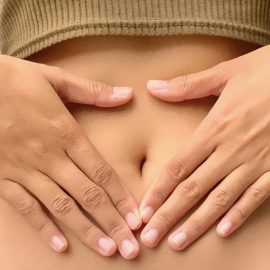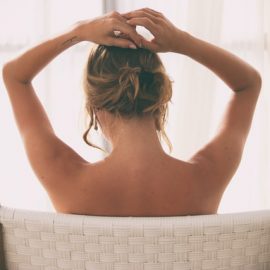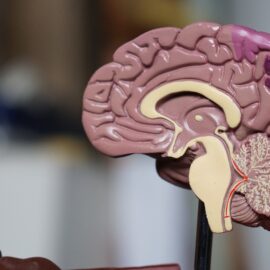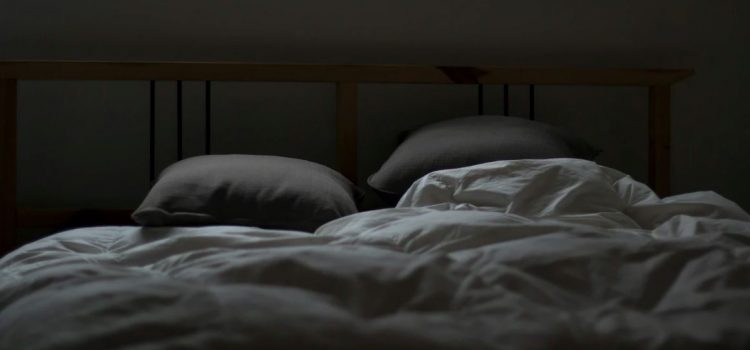
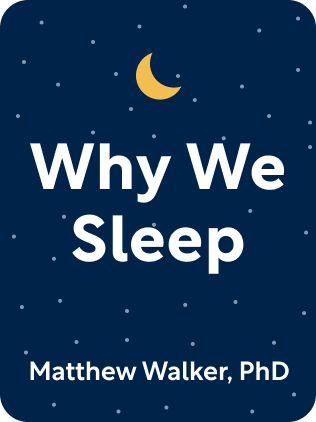
This article is an excerpt from the Shortform summary of "Why We Sleep" by Matthew Walker. Shortform has the world's best summaries of books you should be reading.
Like this article? Sign up for a free trial here .
Are you looking for Why We Sleep quotes by Matthew Walker? Do you want to better understand the science behind sleep?
In his book Why We Sleep by Matthew Walker, Ph.D., he discusses how sleep happens, its major benefits, and the best ways to get better sleep. This is important research because sleep can affect everything from productivity at work to whether or not you develop diabetes or cancer.
Here are the top Why We Sleep quotes by Walker with explanations.
Quotes From Why We Sleep
You’re probably getting less sleep than you should be. Many people are more chronically sleep-deprived than they realize, and the punishments for this are severe—reduced productivity and happiness, and an increased risk of a panel of diseases. In Why We Sleep, “sleep diplomat” and New York Times best-selling author Matthew Walker, Ph.D. unlocks some of the mysteries of sleep based on research from both in and outside his Center for Human Sleep Science.
Here are some of the top Why We Sleep quotes with elaborations.
“Humans are not sleeping the way nature intended. The number of sleep bouts, the duration of sleep, and when sleep occurs has all been comprehensively distorted by modernity.”
According to Walker, there are five modern factors that negatively affect sleep:
1. Caffeine—blocks adenosine receptors, thus reducing how much you feel the desire to sleep. (Shortform note: If you can’t shake the habit of drinking a hot beverage late in the afternoon or evening, try herbal teas that may help promote sleep and relaxation.)
2. Light—nowadays, artificial light constantly fills our homes and disrupts our circadian rhythm. Blue light is most problematic, suppressing melatonin at twice the levels of warm light. (Shortform note: Blue light may have an even bigger impact on children, as they’re more sensitive to light and have bigger pupils.)
3. Constant temperature—in modern times, thermostats homogenize temperatures, suppressing the biological systems that use temperature changes throughout the day as sleep cues. (Shortform note: If it’s too hot and you have no access to air-conditioning, cool your body temperature by avoiding exercising at night, avoiding anything spicy, and stashing your pillowcases in the fridge.)
4. Alcohol—a sedative that causes what appears to be sleep but is really more like anesthesia. It causes you to wake up throughout the night and prevents you from getting REM sleep. Walker encourages total abstinence from alcohol. (Shortform note: A less puritanical approach comes from The Sleep Foundation, who recommend that you stop drinking alcohol at least four hours before bedtime.)
5. Alarms—cause acute stress responses when you wake up, spiking your cortisol levels, heart rate, and blood pressure. (Shortform note: One study suggests that changing your alarm from a jarring sound to an upbeat song can help combat sleep inertia, that disoriented state you’re in upon waking up.)
Humans need more than seven hours of sleep each night to maintain cognitive performance. After ten days of just seven hours of sleep, the brain is as dysfunctional as it would be after going without sleep for twenty-four hours. Three full nights of recovery sleep (i.e., more nights than a weekend) are insufficient to restore performance back to normal levels after a week of short sleeping.
Walker says that routinely sleeping six or seven hours a night “substantially increases your risk of certain forms of cancer.” Additionally, in his blog, he writes that short sleep isn’t linked to all types of cancer, but that it’s associated with increasing the risk of specific cancers, such as lung, ovarian, thyroid, and blood cancer.
“the shorter your sleep, the shorter your life. The leading causes of disease and death in developed nations—diseases that are crippling health-care systems, such as heart disease, obesity, dementia, diabetes, and cancer—all have recognized causal links to a lack of sleep.”
1. Sleep deprivation worsens attention and concentration. Performance progressively worsens with greater sleep deficit, which is especially harmful for those who are performing high-risk activities like driving. (Shortform note: In the original text, Walker wrote that there are more vehicular accidents caused by drowsy driving than by alcohol and drugs combined. He has since removed this vague claim from the book and revised it to include statistics, saying it’s hard to objectively quantify the number of accidents due to drowsy driving versus driving under the influence.)
2. Sleep deprivation worsens emotional control. Walker says that when you’re sleep-deprived, your amygdala (the part of your brain that controls emotion) can run amok, leading to 60% more emotional reactivity. Sleep disruption is a common symptom of all mood disorders. However, sleep deprivation actually makes one-third of depression patients feel better. (Shortform note: Guzey notes that Walker downplays the benefits of sleep deprivation—studies suggest that it’s beneficial to about 45-50% of patients with depression. Walker clarifies that these findings emerged after the book was written.)
3. Sleep deprivation may contribute to Alzheimer’s. Sleep loss may disrupt memory formation as well as the glymphatic cleanup system, which clears out Alzheimer’s-associated plaques. (Shortform note: A study suggests that sleeping on your side can help decrease the chances of developing Alzheimer’s and other neurological diseases.)
“Inadequate sleep—even moderate reductions for just one week—disrupts blood sugar levels so profoundly that you would be classified as pre-diabetic.”
Sleep deprivation reduces insulin responsiveness, which causes hyperglycemia.
- In an experiment, after four hours of sleep a night for six nights, subjects were 40% less effective at absorbing a standard dose of glucose.
Walker says that in a population study, those sleeping less than six hours a night showed higher rates of type 2 diabetes (after controlling for body weight, alcohol, smoking, and other factors).
(Shortform note: A study suggests that obese people who are night owls have a 37% risk of type 2 diabetes versus morning larks, who have just a 9% risk. You may not be able to change your chronotype, but you can change your lifestyle to help control your weight. Avoid having a big dinner, eat a healthy diet, and get enough exercise.)
“Under-slept employees are not, therefore, going to drive your business forward with productive innovation. Like a group of people riding stationary exercise bikes, everyone looks like they are pedaling, but the scenery never changes.
Walker provides a few ideas that organizations could adopt to help people rest more and become more productive:
- Companies should be more flexible about work hours, allow naps, and de-emphasize hours worked in favor of real productivity. (Shortform note: While a flexible work arrangement leads to happier and more productive employees, some people are still hesitant to make use of it, fearing a negative consequence on their careers. It’s thus important for companies who offer flexibility to also address this stigma.)
- Employers and insurance companies can incentivize sleep. For example, for a certain number of days of over seven hours of sleep (as tracked by a sleep monitor), an employee might get extra vacation days, more pay, or reductions in health insurance premiums. (Shortform note: A Japanese company awards points to employees who get a minimum of six hours of sleep a night, at least five days a week. Employees can then use the points to redeem food from the company’s cafeteria.)
- Hospitals should promote sleep hygiene for patients, especially in the ICU and NICU—better sleep is shown to reduce sensitivity to pain, and increase weight gain and O2 sat levels in neonates. Walker suggests changing the harsh white lighting, dispensing earplugs and eye masks, reducing alarms and beeps, and scheduling lab tests to align better with patient sleep schedules. (Shortform note: One study notes other nonpharmacological ways to improve sleep quality in the ICU, such as massages, foot baths, and music.)

———End of Preview———
Like what you just read? Read the rest of the world's best summary of Matthew Walker's "Why We Sleep" at Shortform .
Here's what you'll find in our full Why We Sleep summary :
- Why you need way more sleep than you're currently getting
- How your brain rejuvenates itself during sleep, and why nothing can substitute for sleep
- The 11-item checklist to get more restful sleep today

